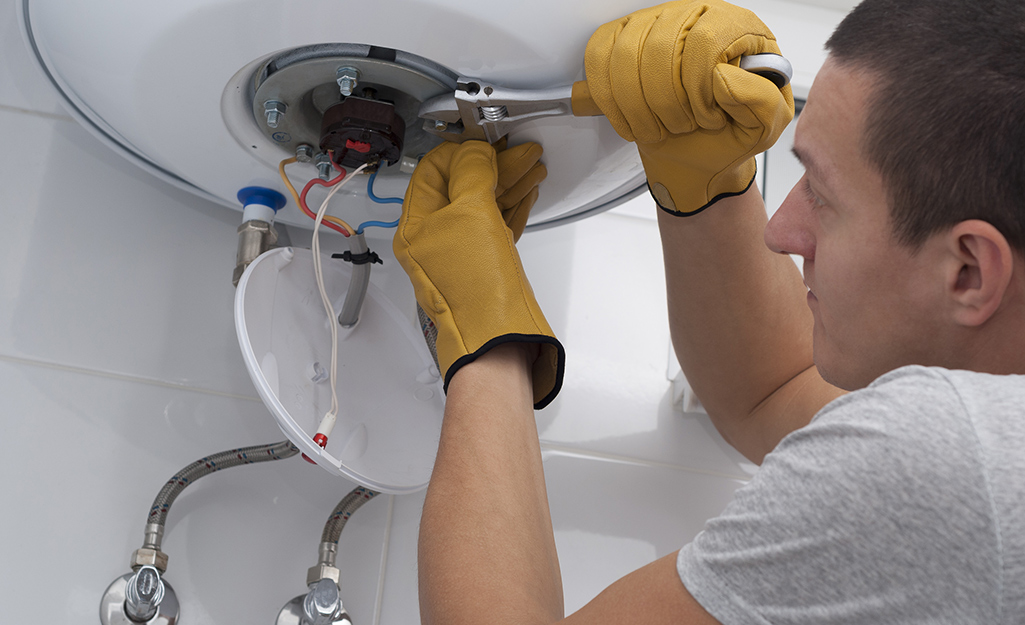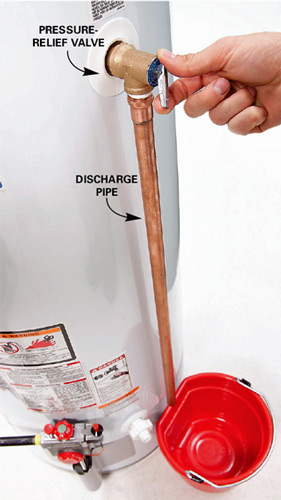Coping with the Most Frequent Hot Water Heater Emergencies
Coping with the Most Frequent Hot Water Heater Emergencies
Blog Article
Are you currently hunting for answers around Is Your Water Heater Leaking??

A hot water heater is one of one of the most important fundamental devices that can be found in a home. With water heaters, you do not require to experience the stress and anxiety of home heating water manually each time there is a demand to take a bath, do the laundry, or the recipes. There is constantly an opportunity that your water heating system would certainly act up as with a lot of mechanical gadgets.
It is necessary to note any little malfunction and tackle it quickly before points get out of hand. Many times, your hot water heater begins to malfunction when there is a build-up of debris as a result of constant use. As a precaution, routine flushing of your water heater is advised to avoid debris accumulation and also avoid useful failure.
Usual water heater emergency situations and exactly how to manage them
Inadequate warm water
It may be that the water heater can't sustain the hot water demand for your home. You might upgrade your water heater to one with a larger ability.
Rising and fall water temperature level.
Your water heater can start producing water of various temperatures generally ice chilly or scalding hot. In this situation, the first thing you do is to guarantee that the temperature is set to the preferred degree. If after doing this, the water temperature level maintains altering throughout showers or various other activities, you might have a defective thermostat. There might be a requirement to change either the heating or the thermostat system of your water heater.
Dripping water heater container.
In this situation, you must transform off your water heating system, allow it to cool down, and also meticulously look for the resource of the trouble. At times, all you need to do is to tighten up a few screws or pipe connections in situations of minor leaks. If this does not function as well as the leakage persists, you might require to use the solutions of a specialist for an ideal replacement.
Discolored or stinky water
You require to recognize if the issue is from the storage tank or the water resource when this happens. If there is no amusing smell when you run cold water, then you are particular that it is your water heater that is defective. The stinky water can be triggered by corrosion or the build-up of bacteria or debris in the water heater storage tank. As soon as you discover this, you can attempt flushing out your container or replacing the anode if the problem continues. The feature of the anode is to clean germs from your storage tank. Because the anode rod replacement calls for a comprehensive expertise of your water heating unit, you will certainly require the aid of a professional.
Final thought
Some homeowners ignore little warning as well as minor faults in their hot water heater unit. This only results in further damage and a feasible full failure of your home appliance. You need to manage your water heater mistakes as quickly as they come up to avoid even more expenses as well as unneeded emergency difficulties.
With water heating systems, you do not require to go via the tension of heating water manually every time there is a requirement to take a bath, do the laundry, or the recipes. It may be that the water heating unit can not sustain the hot water demand for your house. Your water heating unit could start generating water of different temperatures usually ice scalding or cold hot. If there is no amusing odor when you run cool water, after that you are specific that it is your water heater that is damaged. The stinky water can be caused by rust or the buildup of germs or debris in the water heater storage tank.
Water Heater Burst: Why This Happens And What To Do Next
Water Heater Explosion Warning Signs
Since storage water heaters are made of metal and store large volumes of heated water, they carry an increased risk of leaking or even exploding as they begin to rust at the fittings and seams over time. If the thermostat controlling the water temperature within the tank is faulty, or if mineral buildup inside the water heater prevents the thermostat from sensing the water’s temperature correctly, the water could become overheated. This will expand its volume within the tank, causing it to press at the tank’s fittings and seams. If these fittings and seams are rusted or corroded, the pressure could result in a leak or even an explosion.
Here are some risk factors and warning signs of an increased risk of water heater leak or explosion:
Your water heater is more than 10 years old. Your water heater makes clanking, banging or rumbling noises as it heats up, indicating that sediment has built up and hardened inside the tank. There is visible rust on the outside of the water heater, especially located at the pipe fittings or the seams that run down the tank. There is rusty water coming from your water heater, indicating that there may be rust building up inside. Your water heater is leaking, which could indicate either a crack somewhere in the tank or a malfunctioning temperature-and-pressure (T&P) relief valve. What To Do When Water Heater Leaks
If you find water dripping or seeping out of your water heater, or pooling around it, it means your water heater is leaking. If you find a leak, it may be best to call a plumbing professional to diagnose the problem and determine how best to handle it. If you choose to tackle it on your own, there are a few things you can do.
TURN OFF THE POWER
Next, shut off the power to the hot water tank at your home’s electrical breaker box. If you don’t shut off the power, the heating elements within the tank could continue to stay hot, which could pose a fire risk.
If you have a gas-powered water heater, you’ll also need to shut off the gas line leading into the tank.
FIND THE LEAK
Now it’s time to determine where the leak is coming from. Likely locations are the T&P valve, the drain valve or one of the pipes or fittings that feed into the top of the tank. If you see any rust or corrosion on the outside of your water heater’s tank, pipes or fittings, these could also be the source of the leak.
REPAIR THE LEAK
Once you determine the source of your water heater leak, you’ll have a better idea of what steps you need to take to fix the problem. It may be a simple fix—such as using a wrench to tighten fittings or replacing the T&P valve—but it may be something more complicated. You may even need to drain the tank, remove the water heater and install a new one.
https://www.abchomeandcommercial.com/blog/water-heater-burst/

We are very interested by The Importance of Water Heater Maintenance and I hope you enjoyed the new article. Appreciated our entry? Please share it. Help others discover it. Many thanks for taking the time to read it.
Book Service Report this page